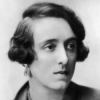Vita Sackville-West

Vita Sackville-West
Victoria Mary Sackville-West, Lady Nicolson, CH, usually known as Vita Sackville-West, was an English poet, novelist, and garden designer. A successful and prolific novelist, poet, and journalist during her lifetime—she was twice awarded the Hawthornden Prize for Imaginative Literature: in 1927 for her pastoral epic, The Land, and in 1933 for her Collected Poems—today she is chiefly remembered for the celebrated garden at Sissinghurst she created with her diplomat husband, Sir Harold Nicolson. She is also remembered as the inspiration for...
NationalityEnglish
ProfessionNovelist
Date of Birth9 March 1892
I suppose the pleasure of the country life lies really in the eternally renewed evidences of the determination to live. That is a truism when said, but anything but a truism when daily observed. Nothing shows up the difference between the thing said or read, so much as the daily experience of it.
The true solitary ... will feel that he is himself only when he is alone; when he is in company he will feel that he perjures himself, prostitutes himself to the exactions of others; he will feel that time spent in company is time lost; he will be conscious only of his impatience to get back to his true life.
Serenity of spirit and turbulence of action should make up the sum of a man's life.
It is necessary to write, if the days are not to slip emptily by. How else, indeed, to clap the net over the butterfly of the moment? For the moment passes, it is forgotten; the mood is gone; life itself is gone. That is where the writer scores over his fellows: he catches the changes of his mind on the hop.
Women, like men, ought to have their youth so glutted with freedom they hate the very idea of freedom.
Nothing shows up the difference between the things said or read, so much as the daily experience of it.
It is necessary to write, if the days are not to slip emptily by. How else, indeed, to clap the net over the butterfly of the moment?
Growth is exciting; growth is dynamic and alarming.
My garden all is overblown with roses,/ My spirit all is overblown with rhyme,
See the last orange roses, how they blow / Deeper and heavier than in their prime, / In one defiant flame before they go ...
There's no beginning to the farmer's year, / Only recurrent patterns on a scroll / Unwinding ...
how poor and disheartening a thing is experience compared with hope!
all the small squalors of the body, known only to oneself, insignificant in youth, easily dismissed, in old age became dominant and entered into fulfilment of the tyranny they had always threatened.
Among the many problems which beset the novelist, not the least weighty is the choice of the moment at which to begin his novel.